
In this polarized and paralyzed body politic, it's all too rare to witness opposite tribes finding common cause in controversial policy battles. But when Kentucky GOP standard bearer Governor Matt Bevin called earlier this week for the compensation of college athletes, your favorite liberal recovering politician stood up to cheer.
In case you missed it, this past Tuesday, Bevin
told a Paducah radio station that the sham paradigm of amateur athletics is due for an overhaul:
I think we should pay college athletes. I really do. This idea that they’re not professionals is nonsense...The coaches are making millions of dollars a year. Shoe contracts are dictating what happens on our college campuses. Athletics directors and others associated with it that are making exorbitant fees. I don’t begrudge people making a high living. Good for them, and I mean that sincerely. But if that comes at the expense of those that are delivering the athletic prowess on the field, then maybe we should rethink the fact that this is really like the minor leagues for the professional sports associations, and they should be compensated and treated accordingly.
Bravo, Bevin!
When pressed on the details, the Governor's response was enigmatic: “I think we should maybe defer that comp – fair enough, they can defer it — but they and their families should be able to benefit from the sacrifices they make.” But to be fair, the Governor has a plate full of many other contentious issues to allow for too deep a dive into the nuances of an equitable and just compensation system.
So in the spirit of bipartisan comity, let this
failed gubernatorial aspirant
re-submit and revise for the Governor my own five-point plan for a pay-for-play college athletic system:
- Pay the players a living wage. It would be too abrupt a shock on the system to throw out the amateur model and replace it with a purely free market professional system. But there's no excuse for denying the disproportionately economically-disadvantaged athletic employee base all of the fruits of their labor. Surrounded mostly by students of higher means, lower-income athletes would naturally be tempted by gift offers from boosters and shoe company shysters. Accordingly, an hourly living wage – the same for each player on scholarship; adjusted slightly among universities by local standards of living – would provide athletes with walking around money for the occasional restaurant jaunt or shopping spree, as well as the exceptional luxury of flying their parents in for special games. And it won’t break the bank of our higher education system.
- It’s gotta be the shoes. Of course, as colleges in Kentucky and across the country face budgetary belt-tightening, supplemental funding sources would be welcome. And in identifying new sources of revenue, where better to begin than with the folks that have created the latest credibility gap for college sports -- the shoe companies? Let's re-allocate the already existing moneys now pocketed by wealthy coaches and shady middlemen to the individuals that need and deserve it the most, and stop forcing players to serve as unpaid jumping billboards for their product. A fair percentage of any and all shoe endorsement deals could help underwrite an athlete compensation pool, which could potentially sweep in athletes beyond just the two major revenue-generating sports.
- Don’t forget about the girls. Gender equity in college athletics is one of the great successes of the modern civil rights era. And even though on only rare occasions will a women’s team generate meaningful revenue, the spirit, if not the letter, of the Title IX laws may require colleges to pay women cagers the same as the boys. Since big-time college football is for the boys only, NCAA policymakers should choose to compensate at least one other women’s sport to provide gender balance.
- Say yes to agents. As any college hoops fan knows intimately, the demarcation line for college eligibility has often been the signature page of a sports agent contract. Coach John Calipari has a better, albeit controversial idea: Let college players sign with agents now, without penalty. This seems counterintuitive, but as Andy Staples persuasively elaborates here, instead of the current black market system where athletes develop subterranean relationships with questionable characters, the most promising players could legally and publicly sign up with agents who are regulated and monitored by the NCAA. Conceivably, through a carefully designed registration system, players could take out significant loans from their agents, as long as it was executed in a fair and transparent manner. Money is already pouring in the system; legalizing and regulating agents could provide that funds go to those that truly earn them.
- It’s the education, stupid. Finally, and most importantly, remember that the primary mission of the university is to educate and prepare its student body for the postgraduate job market. The core flaw of today's NCAA is the ludicrous and pernicious assumption that every “scholar-athlete” has the preparation, the aptitude – or even the need – to earn a four-year, liberal arts bachelor’s degree. For decades, outside of sport, policymakers (including Governor Bevin!) have been encouraging youth from lower income environments and underachieving high schools to enroll in two-year vocational and technical colleges, where they can be empowered with the skills they need for the modern job market. That’s why it is incumbent on the NCAA and its member schools to direct athletes, when appropriate, to focus their academic attention on job skills and technical programs that interest them, prepare them for postgraduate life, and enable them to earn associates degrees at the university, or through an affiliated community college or vo-tech program. Accordingly, the NBA and its players’ union should effectuate a new “two and done” system, which will enable each player to earn sufficient credit to graduate with at least an associates’ degree. And those that stay on past their two-year degrees can be enrolled in apprenticeship programs with local businesses, or compensated job training in the workplace.
 In this polarized and paralyzed body politic, it's all too rare to witness opposite tribes finding common cause in controversial policy battles. But when Kentucky GOP standard bearer Governor Matt Bevin called earlier this week for the compensation of college athletes, your favorite liberal recovering politician stood up to cheer.
In case you missed it, this past Tuesday, Bevin told a Paducah radio station that the sham paradigm of amateur athletics is due for an overhaul:
In this polarized and paralyzed body politic, it's all too rare to witness opposite tribes finding common cause in controversial policy battles. But when Kentucky GOP standard bearer Governor Matt Bevin called earlier this week for the compensation of college athletes, your favorite liberal recovering politician stood up to cheer.
In case you missed it, this past Tuesday, Bevin told a Paducah radio station that the sham paradigm of amateur athletics is due for an overhaul:
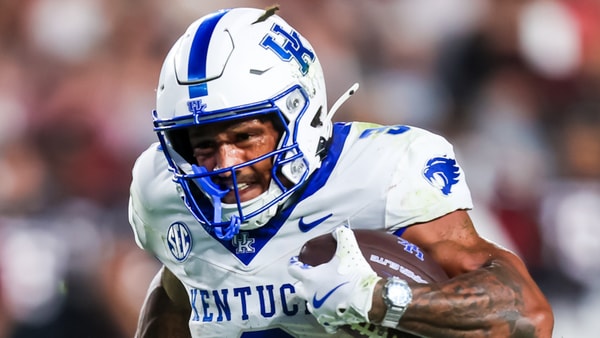
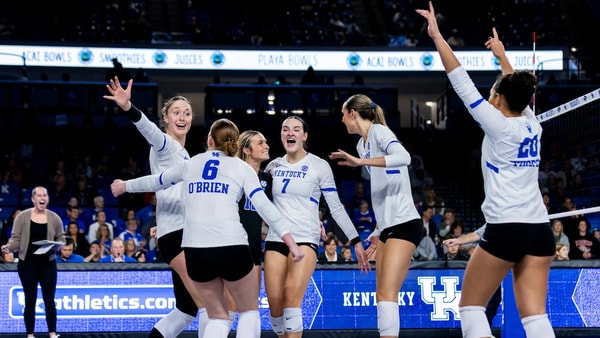
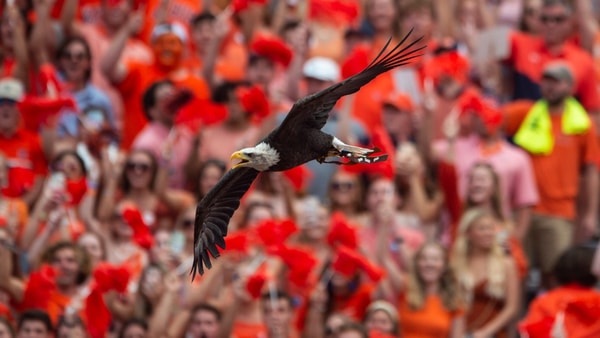
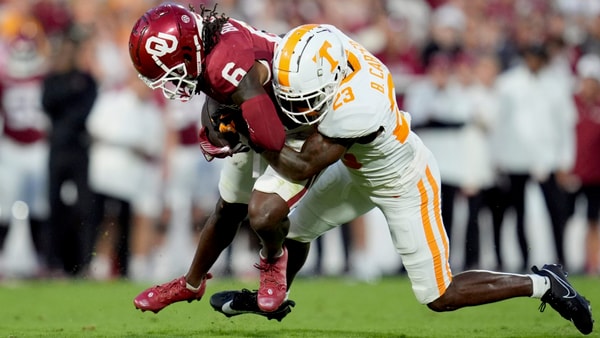
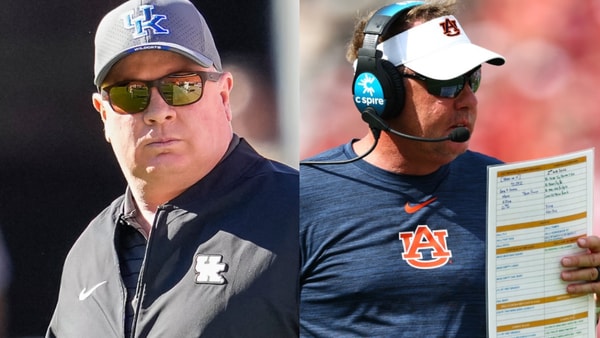
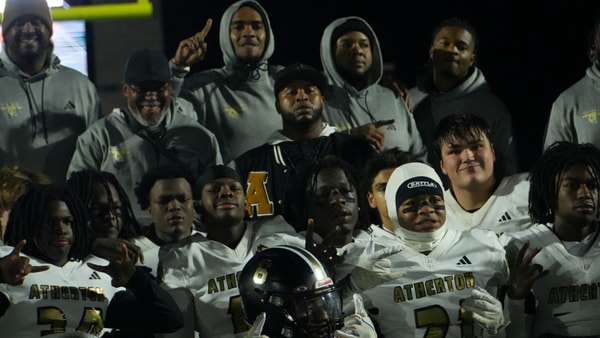
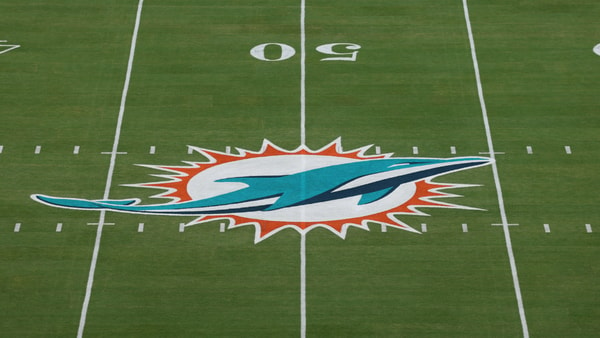
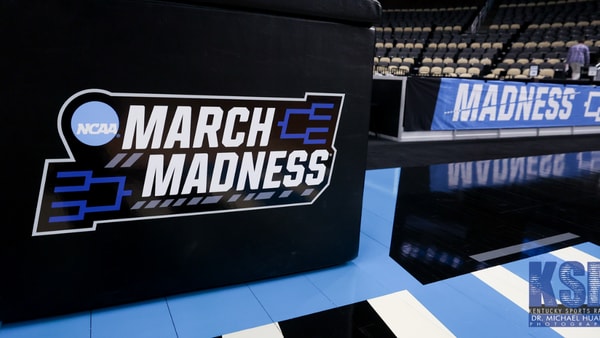
Discuss This Article
Comments have moved.
Join the conversation and talk about this article and all things Kentucky Sports in the new KSR Message Board.
KSBoard